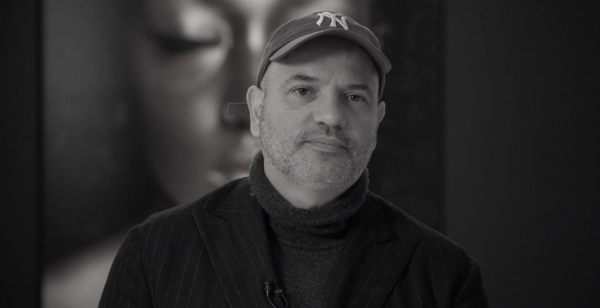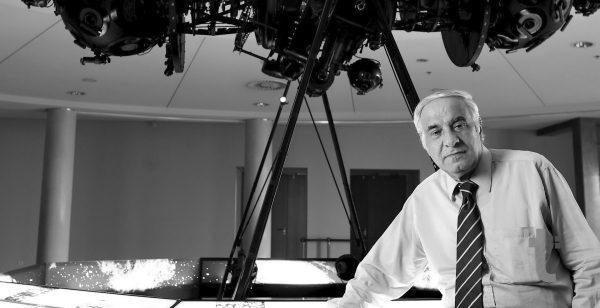Political science professor at Oxford University, Stathis Kalyvas, talks about the paths that a failure can open, the role of education and studies in the pursuit of self-fulfillment, and the great myth that a university professor knows everything. He explains why learning is a source of joy and why everything can change and be revised in life, as it happens in history.
A path to knowledge, guided by curiosity
By Christina Katsantoni
Translated by Alexandros Theodoropoulos
His real motivation was and remains an unbridled curiosity. This led him on a journey that started from the centre of Athens and continued in America and England, in some of the world’s best Universities.
Stathis Kalyvas, now in the University of Oxford where since 2018 he’s held the Gladstone chair, the oldest chair of political science in Britain, continues his journey in life and science, always guided by the feeling that there are many interesting questions which are yet to be answered.
Between two worlds
He was born in Corfu but grew up in Kolonos. From a young age he loved the neighborhoods of the centre of Athens and was fascinated by the vibrant life of the city around the shops on Evripides street.
At home he spoke two languages, Greek and French, because of his French mother. This turned him into a target at school, creating at the same time a sense of confusion about where he belonged, both in Greece and later in France, where he spent some of his school years. But at the same time, that gave him the opportunity to learn from a young age how to adjust in different environments and in places of different and sometimes contradicting perceptions. For Stathis Kalyvas, this experience proved to be particularly valuable in the future.
Failure and hard work
His career in science began with a failure. Based on his performance at school, he tried to get into Law School, but he failed. Thus, he went to the Department of Political Science, where he discovered that political science is a way of understanding how societies function, as politics is at the heart of society. There, he realized that he wanted to follow the path of research and teaching, but things weren’t easy.
There was no financial support for postgraduate studies abroad, so he tried to look for a scholarship. The first attempt was unsuccessful but this did not discourage him. He took the opportunity to complete his military service, while at the same time preparing for the next round of scholarship applications to universities in the United States and the United Kingdom.
The scholarship eventually came from the University of Chicago, where he struggled to maintain it for five years in a highly competitive environment and in 1993, he finally earned his doctorate. It took endless hours of study in dark Chicago, something that wasn’t a deprivation, but a privilege, that enabled him to begin his academic career.
The Academic Career
Stathis Kalyvas's first job at an American university was as an assistant professor at Ohio State University and from there to New York University, where he rediscovered the rhythm of the big city he had loved since he was a child.
He continued at the University of Chicago until he was elected professor at the renowned Yale University in 2003, remaining there until 2018, when he accepted the invitation of the University of Oxford. He had already completed 30 years of life in the US, but he wanted to "put himself out" in order to renew his work and review what he had taken for granted. Because as he says: life is worth living, as you can always rethink it...
Broadening new horizons
Throughout this journey, Stathis Kalyvas never stopped looking for solutions to unanswered questions that "burned" him, always driven by his curiosity. Not only because the notion that a university professor knows everything is a big myth for him, but also because constant study, apart from being a tool, is also a great source of joy, as it broadens new horizons.
The place where he works, spending most of his time, is considered his home. Thus, the university is a family for him. Recognition was never his goal. He never chased the great Universities, but he planned his career based on the perception that if you do what you like and have love and faith in its value, there will eventually be some people that will recognize it.











































